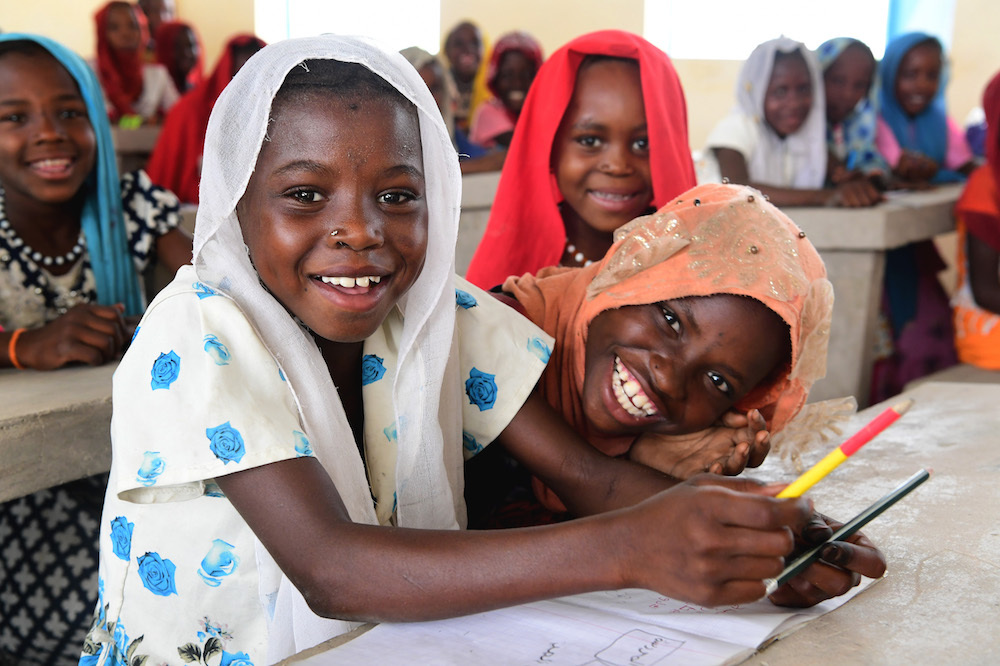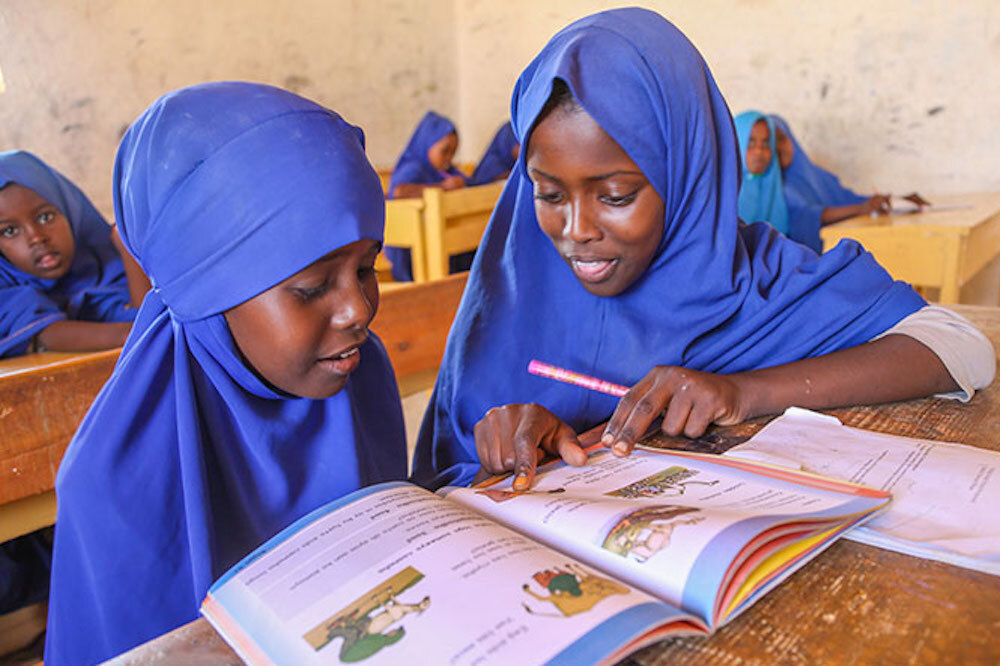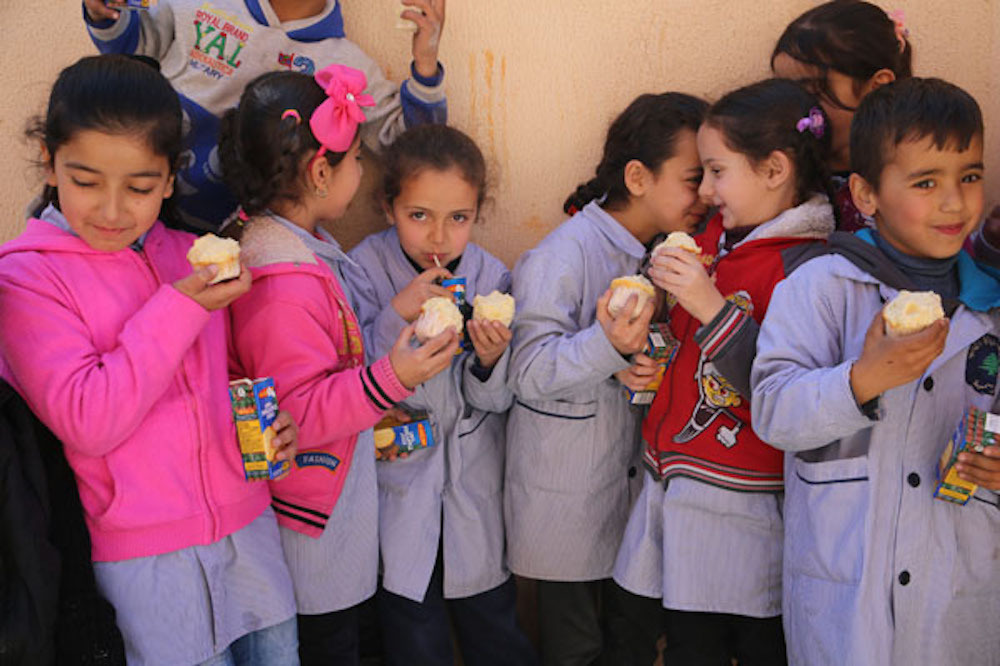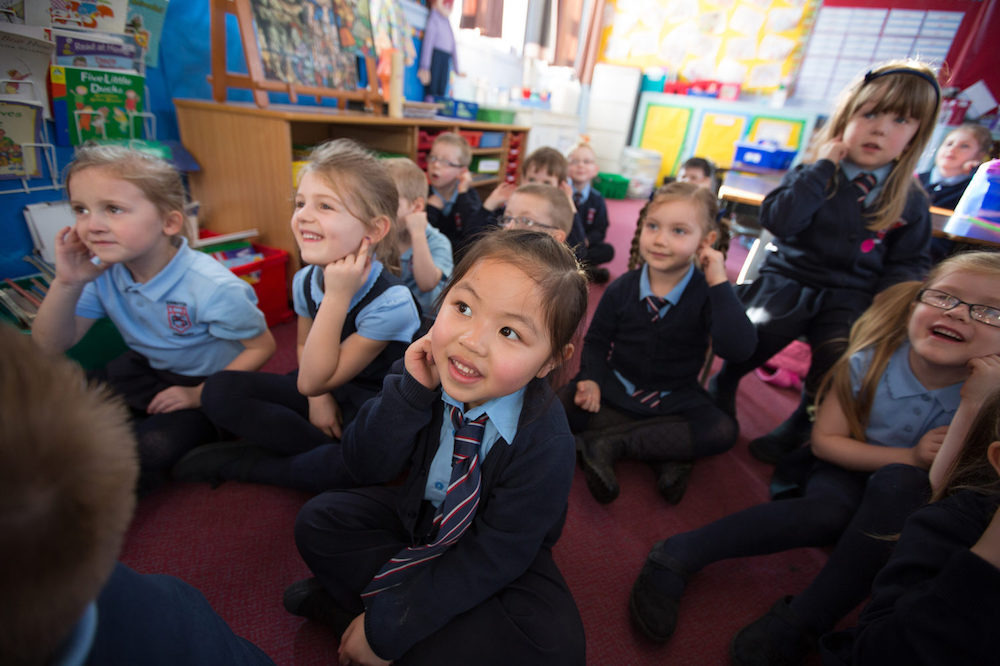
Five things you need to know this week about global education

Children in conflicts, Girls' education
It's good news all round - from more girls completing their education to plans to feed 3.6 million schoolchildren in Iraq.
Nine in 10 girls now complete primary school
More girls than ever are completing school around the world, new United Nations research has shown.
Almost nine in 10 girls (87%) now finish their primary education – an increase of nearly 20% over the past 25 years, according to a new paper launched at this week’s Generation Equality Forum in Paris.
UNESCO’s Global Education Monitoring Report said this was on top of its finding last year that 180 million more girls have enrolled in primary and secondary education since 1995. The most impressive progress has been in Central and Southern Asia. Just over half of girls completed primary school there 25 years ago – now it’s 90%.
The new paper – An unfulfilled promise: 12 years of education for every girl – says the gains are not limited to primary school. For example, in Northern Africa and Western Asia, female completion rates in lower secondary education rose from 39% in 1995 to 74% now.
Have we kept our promise on girls’ education?
A new paper released today highlights new ways of looking at the progress made in girls’ completion rate.#HerEducationOurFuture #ActForEqual #GenerationEqualityhttps://t.co/e2R6yA23qB pic.twitter.com/ML1Ntp5NPN
— Global Education Monitoring Report UNESCO (@GEMReport) June 30, 2021
Lilian, from Eldoret, Kenya, told the GEM Report: “I realised my dreams and have changed my attitude towards life. I encourage young girls not to give up. My hope is to make sure they achieve their best.”
But the paper cautions that many of the world’s poorest girls are still shut out of education. A blog by the GEM Report says: “Poverty, conflict and displacement in many Western and Central African countries, for instance, has meant that this sub-region has seen very little progress. The numbers are disconcerting: in most countries in the sub-region, significantly less than 50% of girls are completing primary school and less than 12% are finishing lower secondary school.”
The paper also warns that 2021 is a critical year and countries should use the post-Covid recovery period to build education systems that create more opportunities for girls.
Education boost for girls in Somalia

Over 100,000 children in Somalia will benefit from a World Bank-financed education project (World Bank)
Girls in particular will benefit from an education project that will reach more than 100,000 children in the most disadvantaged areas of Somalia.
It is the first time in 30 years that the World Bank has funded investment in the country’s education system.
The project aims to get more girls enrolled by reducing the distance to school, providing safe learning environments, recruiting female teachers and building a mindset of inclusion in the school and community.
Somalia’s education system was destroyed by years of conflict that left only one in five children attending primary schools. Girls have been especially disadvantaged – more than 70% of women in rural areas have never been to school.
Safe learning in conflict zone
#EducationCannotWait announces US$1 million First Emergency Response grant that will reach +18K children & youth in the Central African Republic.
Learn more: https://t.co/NW5Gc7QoX0@UNICEF_CAR @NRC_Norway pic.twitter.com/8sdZyWDX55
— Education Cannot Wait (@EduCannotWait) June 30, 2021
Emergency funding from Education Cannot Wait will help 18,300 conflict-affected children and youth aged three to 18 in the Central African Republic (CAR) – 60% of them girls and 10% children with disabilities.
The money will be used to provide safe, clean and inclusive learning spaces with basic educational materials.
Half of all children in the country have been affected by increased violence, displacement and the closure and occupation of schools connected with civil unrest following the December 2020 elections.
Fran Equiza, UNICEF Representative in CAR, said: “We will also be able to invest further into alternative learning opportunities – such as accelerated classes and radio education – for out-of-school children, in combination with psychosocial support – a crucial need in such an emergency context.”
Iraq to deliver on school meals

The World Food Programme works to ensure all schoolchildren have access to healthy meals and are ready to learn (World Food Programme)
Iraq’s government and the World Food Programme have launched a plan to expand the country’s school meals over the next four years to reach 3.6 million children.
So far this year, 264,000 of the most vulnerable children have been provided with school meals and support. The plan is to increase that to 450,000 in the 2021-2022 academic year, 900,000 the following year, then 1.8 million and 3.6 million by 2024-2025.
The nutritious school meals provide the energy children need to focus during classes. All the food is bought from local suppliers, bakeries, fruit markets and small businesses.
“It is proven that the school feeding programme is vital for achieving success in education, strengthening children’s focus and mental capacity,” said Iraqi Director of Sport and Deputy Education Minister spokesperson Mohammed Al Aboudi.
English schools set to end quarantine rules

The end of the school ‘bubble’ system could be announced in the next stage of England’s coronavirus roadmap (UNICEF UK)
Covid restrictions in England’s schools are expected to be lifted on July 19 when the country takes another big step out of lockdown.
The current system can result in entire classes being asked to self-isolate if one of their classmates tests positive.
“What I want to see is these restrictions, including bubbles removed as quickly as possible, along with wider restrictions in society,” said Education Secretary Gavin Williamson. “We expect to be able to confirm plans to lift restrictions and bubbles as part of step four (of the roadmap out of lockdown.)”
In South Africa, a third wave of cases has seen schools shut down until July 19 as part of new lockdown measures.
More news

